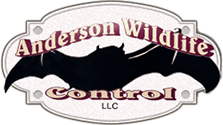 Squirrels typically eat nuts, seeds, acorns, mushrooms, insects, and leaves, but they will also feast on food if it is readily available in a garden or yard. They can cause many other problems.
Squirrels typically eat nuts, seeds, acorns, mushrooms, insects, and leaves, but they will also feast on food if it is readily available in a garden or yard. They can cause many other problems.
Squirrels often eat seeds from bird feeders. They also have been known to chew the openings of birdhouses and eat nesting birds.
Squirrels can damage lawns by burying and digging up nuts. They may eat seeds or plants in gardens and chew bark and twigs on trees and shrubs. They sometimes walk or run across power lines and short out transformers. Squirrels can gnaw wires and enter attics to build nests.
You can keep squirrels out of your house by closing any openings into your attic and other buildings on your property. Place heavy wire mesh or solid metal panels over openings. Be careful not to trap squirrels inside because they can do considerable damage trying to get out.
You can protect trees on your property from squirrels by encircling them with 2-foot-wide collars 3 to 4 feet off the ground. This will stop squirrels from climbing trees and chewing on bark and branches. You can also place metal collars around poles to keep squirrels off wires.
You can keep squirrels out of your garden by installing a tall fence. Squirrels are good at squeezing through small openings and jumping. Trim tree branches and leaves in your yard to keep squirrels from jumping onto the roof.
You can provide squirrels with an alternative food source, such as corn or seeds, to keep them from eating seeds from your bird feeder or plants in your garden. You can also apply a squirrel repellent to plants in your garden.
If squirrels are a problem at your home, take action before things get worse. Contact Anderson Wildlife Control today so we can humanely trap and relocate the squirrels.






